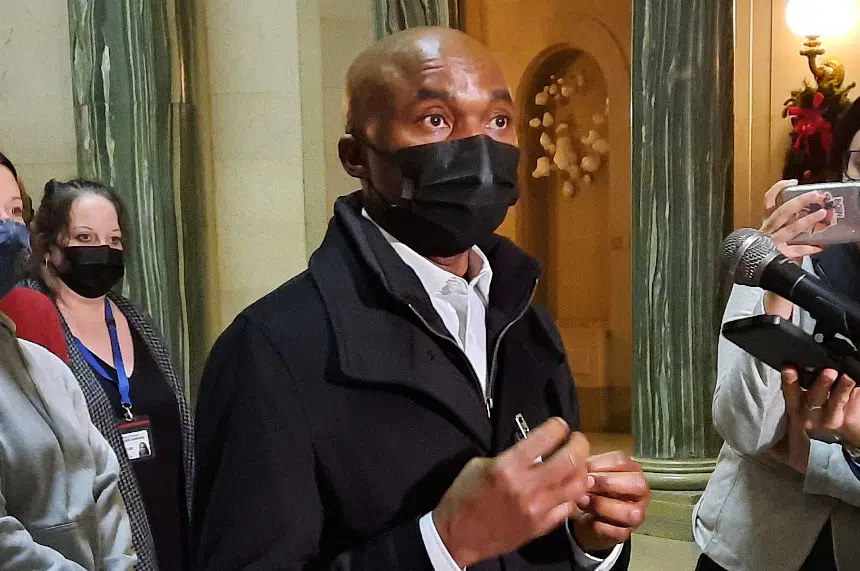Workers in healthcare are getting so tired and overworked they’re quitting and retiring early, according to the head of CUPE local 5430.
Bashir Jalloh attended the legislative building Thursday morning with a dozen workers, he was there to ask the government to work with the Saskatchewan Health Authority (SHA) and hire more workers.
CUPE 5430 represents about 14,000 healthcare workers in the province including technologists, Continuing Care Aides (CCAs), schedulers, housekeepers, and cooks, according to Jalloh.
Speaking to the media, Jalloh said they weren’t trying to make a political point, they’re just asking for help.
“We want help to deal with the chronic short-staffing that is facing healthcare workers and the impact it is having on all of us, our patients, the residents in our communities,” said Jalloh.
Short-staffing in healthcare was a problem before the pandemic, but Jalloh said COVID-19 has only compounded the situation, particularly in rural communities. Jalloh said SHA numbers show between 50 and 60 per cent vacancies in some communities.
“It is getting worse and worse every day.”
Because of the shortage, Jalloh said workers are having to do huge amounts of overtime. In Big River, he said there are CCAs working 80 hours of overtime in a week.
“This is not sustainable, we cannot continue that. If you have to do the math, if you have one person doing 80 hours … that is enough to have a full-time job,” said Jalloh.
He said they have an obligation to their patients and can’t just walk away.
“Sometimes people are being called in to come back to work, come back from holidays or being denied the holidays,” explained Jalloh.
He said this is having a negative effect on the workers’ mental health and some are quitting, while others are retiring.
“There is a significant increase in the number of people taking early retirement,” said Jalloh.
The single biggest problem, according to Jalloh, is that the majority of the jobs posted for positions like CCAs and cooks are not permanent full-time positions, they’re half or even quarter positions. Jalloh said that graduates aren’t going to stay in Saskatchewan and people aren’t going to move here for half a job.
“Who is going to take a casual position, a 0.2 job a 0.5 job? It is not sustainable,” said Jalloh.
Jalloh also pointed to the collective bargaining agreement, which he said has a market supplement mechanism in it, and he wants the SHA to use that to entice more people to difficult to staff areas, like in rural parts of the province.
When asked about the workers’ concerns, Premier Scott Moe said it’s been a challenging 20 months for everyone, and particularly healthcare workers.
“I know there are people that are working extra shifts and extra hours and for that, I think all of us in this province are eternally grateful,” said Moe.
The premier went on to point out that healthcare workers’ numbers have grown under his government.







